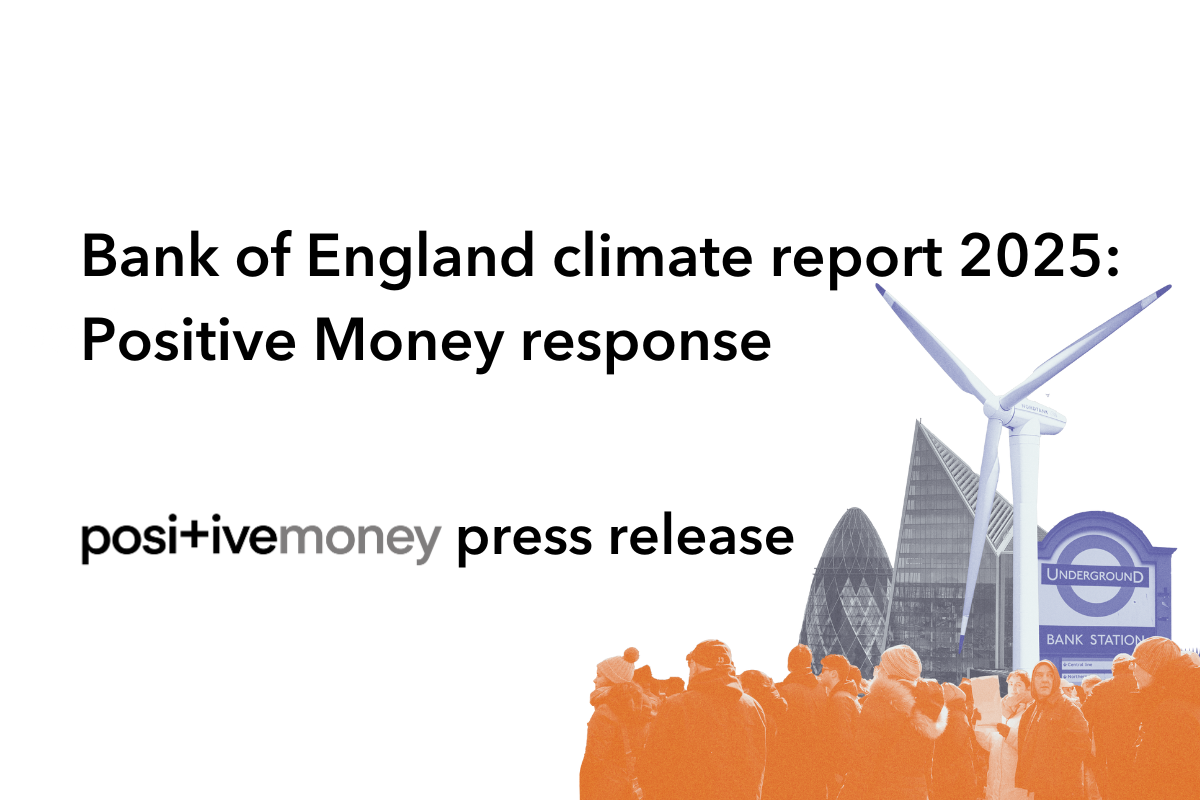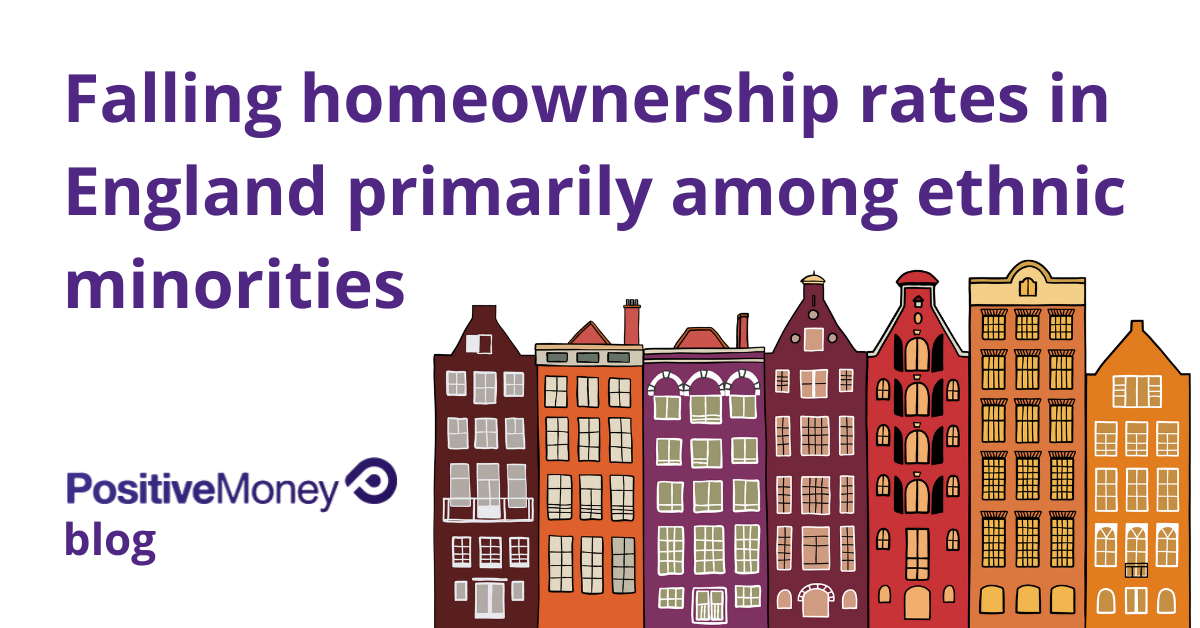
Green FinanceUK
26 June 2025
April 21, 2023
Analysis of Census data reveals that national homeownership levels have dropped 6% since 2001, mainly due to low and decreasing proportions of ethnic minorities owning their homes
Analysis of the latest Census data by research and campaign group Positive Money illuminates growing inequalities in our housing system, finding that decreasing rates of homeownership and high rates of overcrowding are largely experienced by ethnic minorities.
Since 2001, ethnic minority households have been around a quarter less likely to own their own homes than the national average. In this time, national homeownership rates have dropped 6.3%, driven by a 8.5% drop among ethnic minority households, compared to a 3.1% drop among White British households.
Between 2011-2021, the 1.8% drop in national homeownership was partly down to an increasing proportion of ethnic minority households in the population, who are still trapped out of buying homes and thus have persistently low homeownership rate. Ethnic groups experiencing an actual decline in average homeownership rates have been Pakistani (-3.3%), Bangladeshi (-3.3%), Black African (-1.3%) and Black Caribbean (-3.9%) households. All other groups have seen a constant or increasing average homeownership rate.
At the same time, 14% of ethnic minority households remain overcrowded, showing little improvement on the 15% rate of overcrowding in 2011. This is 3.5 times greater than the national average for overcrowding (4%), and is significantly worse for some people: 28% of Bangladeshi households are overcrowded (down 2% since 2011), 21% of Black African households (down 1%), and 21% of Pakistani households (down 2%).
This situation is even worse for ethnic minority Londoners. Among London’s Mixed White/Black Caribbean, Indian, Pakistani and Black Caribbean households, who were already less likely to own their homes in 2001 than other groups, there has been nearly a 10% drop in homeownership rates over the last twenty years, higher than the decreases for other ethnic minority households elsewhere in the country (4-7%), and for White British Londoners (2.5%). Less than a quarter of Mixed White/Black African, Mixed White/Black Caribbean and Black African households now own their home in London.
The research illustrates that the lack of progress on the housing crisis over the last twenty years has particularly affected Black, Asian and ethnic minority communities in the UK. It also reveals that this is likely to endure long-term, finding that younger people from ethnic minority backgrounds are still significantly less likely to own their home than others in their age group.
On average two thirds (61%) of census respondents aged 35-49 own their own home, compared to just a quarter (28%) of Black 35-49 year old’s in 2021. For mixed race and Arab households, typically 10-20% fewer people own homes in all age groups than the national average.
Positive Money’s Housing Policy Lead, Martha Dillon, said:
“Our findings confirm that the housing crisis is of an order of magnitude more extreme for Black, Asian and ethnic minority communities in England & Wales. The government and opposition claim to want to bring homeownership rates up, yet do not acknowledge that falling homeownership rates and unacceptable living conditions have been concentrated among Black and Bangladeshi households.
“The situation for ethnic minorities starkly illustrates that the transformation of our homes into vehicles for accumulating wealth over the last decades has created a two-tier housing system. On the one hand, an expensive system of homeownership; on the other, a precarious, unaffordable and dangerous rental sector, that the majority of Black, Bangladeshi, Mixed Race, Arab, Roma and Traveller households have little option but to live in.
“We urgently need to tackle the inequalities in our housing system, but this needs more than efforts to make mortgages easier to access. We need serious long term plans from policymakers that halt the invasion of our homes by financial interests, grow the social housing stock and protect people from poor quality, unaffordable and overcrowded homes.”
Notes to editors:
This research has been completed as part of the publication of a detailed research briefing on the housing crisis and different ethnic minority groups in England by Positive Money. The full briefing is available here: https://positivemoney.org/publications/housing-crisis-different-ethnicities-2023
The raw data used by Positive Money can be viewed here: Press release – raw data of Positive Money 2023 census analysis for housing
‘Banking on Property’, Positive Money report, March 2022 discusses the financialisation of our homes in detail, including additional details on inequalities faced by young and low-income people: https://positivemoney.org/publications/banking-on-property/
For additional comment or to arrange a briefing with a report author, press@positivemoney.org.uk
About Positive Money
Positive Money is a research and campaign organisation working towards a money and banking system which supports a fair, democratic and sustainable economy. Set up in the aftermath of the financial crisis, Positive Money is a not-for-profit company funded by charitable trusts and foundations, as well as small donations from its network of over 65,000 supporters. www.positivemoney.org.uk
